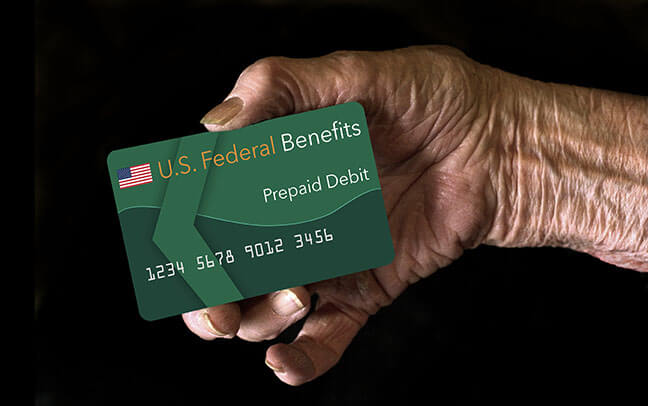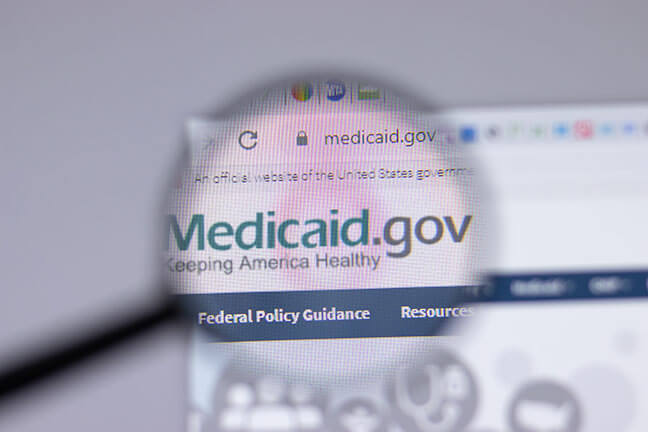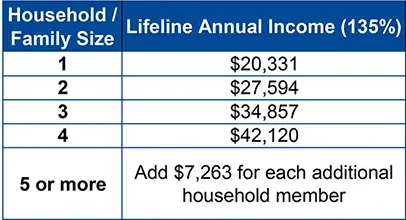Are you searching for information on government benefits and assistance programs available to immigrants in the United States?
This guide will provide a detailed overview of various assistance programs, for legal immigrants ranging from green card holders (lawful permanent residents) to those who have obtained US citizenship.
We will also include examples of benefits that individuals have successfully received through these programs. Our aim is to ensure that no eligible individual in need of these benefits is left behind.
How to Check Your Immigration Status
To determine your current immigration status as a legal immigrant in the United States, several resources are available to help you.
One important website is the U.S. Citizenship and Immigration Services (USCIS) official website. On the USCIS website, you can find the necessary information and tools to verify your immigration status. The website provides a variety of resources, including forms, guides, and frequently asked questions, to help you navigate the process.
Another useful resource is the Department of Homeland Security’s website, specifically the Immigration and Customs Enforcement (ICE) section. ICE provides information and services related to immigration enforcement and compliance. While their primary focus is on enforcement, their website can offer guidance on verifying your legal immigration status and understanding the requirements and responsibilities that come with it.
By visiting these websites and exploring the specific sections related to immigration status, you can access reliable information and resources to help you determine and confirm your legal immigration status in the United States. It’s important to rely on official government websites for accurate and up-to-date information regarding your immigration status.

Which Immigration Statuses are Eligible to Receive Federal Public Benefits?
Several immigration statuses are eligible to receive federal public benefits in the United States. Here are some of the common immigration statuses that may qualify:
- Lawful Permanent Residents (LPRs) or Green Card holders: LPRs have been granted permanent residency in the United States and are generally eligible for most public benefits programs.
- Refugees and Asylees: Individuals who have been granted refugee status or have been granted asylum in the United States are eligible for federal public benefits.
- Conditional Entrants: Conditional entrants are individuals who entered the United States before April 1, 1980, under certain conditions are eligible.
- Victims of Human Trafficking and Crimes: Immigrants who have been certified as victims of human trafficking or certain crimes are eligible for federal public benefits.
- Cuban and Haitian Entrants: Certain immigrants from Cuba or Haiti who meet specific requirements are eligible for federal assistance.
It’s important to note that eligibility for federal public benefits can vary depending on the specific program and lawful permanent residence status. Additionally, some benefits may have specific eligibility criteria beyond immigration status. It is recommended to consult official government websites or seek legal advice to understand the eligibility requirements for specific federal benefits based on your visa status.
Supplemental Nutrition Assistance Program (SNAP)
The Supplemental Nutrition Assistance Program (SNAP), also known as food stamps, is a government initiative that helps individuals experiencing food insecurity or poverty afford nutritious food.
This food assistance program is available to various categories of Lawful Permanent Residents (LPRs) without any waiting period. These include qualified children under 18 years old, LPRs with a military connection, LPRs receiving government payments for disability or blindness, refugees admitted under section 207 of INA, and victims of trafficking. There are also LPRs who become eligible public cash assistance after a waiting period, such as those who have earned 40 quarters of work or belong to specific groups outlined by the USDA.
To apply, individuals must meet income requirements, complete an online application, and provide necessary personal information.
Approved applicants receive food benefits through an Electronic Benefits Transfer (EBT) card, which can be used like a debit card at participating stores. Additionally, EBT cards enable immigrants to order groceries online through large retailers such as Walmart and Amazon.
Note: SNAP does not cover the delivery cost for groceries. If you participate in additional cash assistance programs such as TANF, you may be able to use your TANF benefits to cover the delivery charges.

Supplemental Security Income Benefits
The Supplemental Security Income (SSI) program provides financial assistance to low-income, blind, or disabled individuals aged 65 or older, as well as children under 18 with certain disabilities. SSI benefits can help cover essential expenses like food, clothing, housing, and work-related or everyday costs through monthly cash assistance payments.
To qualify for SSI, individuals must meet the Social Security Administration’s disability criteria. However, there are specific guidelines for non-citizens, including considerations related to the sponsor’s income and immigration status.
HUD/ Section 8 Housing Assistance for Immigrants
Both U.S. citizen immigrants and Lawful Permanent Residents/Green Card Holders are eligible to receive housing assistance. This program aims to make safe and sanitary housing affordable by providing financial support for rent. There are two main forms of housing subsidies: Public Housing and Section 8 Housing. While public housing involves government-owned or managed residences, Section 8 Housing allows individuals to reside in privately owned homes with rental assistance.
Eligibility requirements for housing assistance vary based on factors like age, living situation, and income level. Applicants must meet all the necessary criteria to be accepted into a housing program. Interested individuals can sign up for Public and Section 8 Housing here.
TANF – Temporary Assistance for Needy Families
Temporary Assistance for Needy Families (TANF) is a program that provides temporary financial assistance to low-income families with dependent children. Legal immigrants can also qualify for TANF benefits under certain conditions.
To be eligible, immigrants must have a qualified immigration status and have lived in the United States for at least five years, although some states may have shorter residency requirements. Additionally, immigrants must meet the income and resource limits set by their state of residence.
TANF cash assistance benefits can help cover essential needs such as food, housing, childcare, and job training. Check your eligibility and apply for TANF at Benefits.gov.

Medicaid for Immigrants
Medicaid is a government-funded health coverage program that serves millions of people across the United States, particularly low-income individuals, children, pregnant women, and elderly adults.
Each state has its own Medicaid program, which must comply with federal guidelines. Immigrants who are “qualified non-citizens” can generally be eligible for Medicaid and the if they meet their state’s income and residency rules. However, a 5-year waiting period may apply for many qualified non-citizens, except for specific exceptions such as refugees and asylees.
Children’s Health Insurance Program (CHIP)
The Children’s Health Insurance Program (CHIP) is a vital program that provides affordable health insurance coverage to children in low-income families. CHIP assists legally residing immigrants by offering access to healthcare services for their children.
This means that eligible immigrant children can receive comprehensive medical, dental, and vision care, as well as regular check-ups, immunizations, and prescription medications. CHIP aims to ensure that all children, including immigrant children, have the opportunity to grow up healthy and thrive.
You can apply for both Medicaid and CHIP through the Medicaid.gov portal.
Private Health Insurance Options for Immigrants
If individuals do not qualify for Medicaid, there are alternative options for legal immigrants to obtain health insurance for themselves and their families. Healthcare.gov is a government-operated online platform that helps people shop for affordable and also zero premium private health insurance plans (when meeting certain eligibility requirements . The website provides a user-friendly interface where individuals can compare different plans based on their needs and budget.
To apply for private health insurance individuals will need to provide personal information, including immigration status and income details. The website also offers assistance in multiple languages, ensuring accessibility for non-English speakers.
Additionally, some states have their own health insurance marketplaces, such as Covered California and NY State of Health. These state-based marketplaces offer health insurance options specifically tailored to residents of those states, including legal immigrants.
If you need assistance with the complex and often confusing language of the Health Insurance Marketplace website, you can receive FREE assistance and detailed explanations from licensed insurance agents.
Note: Licensed health insurance agents are compensated by the insurance carriers. You do NOT need to pay them for consultations.
Medicare for Disabled and Senior Citizens That are 65 and Over
Medicare is a government-funded health insurance program in the United States that provides coverage for certain medical expenses. As an immigrant in the USA, you may be wondering about Medicare and whether you qualify for it. Let’s explore!
Medicare primarily serves individuals who are 65 years old or older, but it can also be available to certain individuals with disabilities or specific medical conditions. To be eligible for Medicare, you generally need to meet the following requirements:
- Age Requirement: You must be 65 years old or older. However, some individuals with disabilities or specific medical conditions may qualify for Medicare before turning 65.
- Legal Residency: You must be a lawful permanent resident (LPR) or have been living in the United States for at least five continuous years. If you are an LPR, you generally meet this requirement.
- Work History: To qualify for premium-free Medicare Part A (hospital insurance), you or your spouse must have worked and paid Medicare taxes for 40 quarters (10 years). If you do not meet this requirement, you may still be eligible for Medicare, but you may need to pay a premium for Part A and must enroll in Part B. The premium owed each month will be dependent on the total number of quarters you have worked and paid taxes.
It’s important to note that Medicare has different parts, each covering specific services.
- Part A covers hospital stays, while Part B covers medical services like doctor visits and outpatient care.
- Part C (Combines the benefits of Part A and B) – Medicare Advantage
- Part D provides prescription drug coverage.
To determine your eligibility for Medicare and understand the specific requirements based on your immigration status and work history, it’s recommended to visit the official Medicare website or contact the Social Security Administration (SSA) for guidance.
Similar to the private health insurance mentioned above, you can receive FREE consolations to understand and apply for Medicare plans.

Educational Assistance Programs
There are educational assistance programs available to help immigrants pursue higher education or gain new skills. One such program is the Federal Student Aid (FAFSA), which provides financial aid, including grants, loans, and work-study opportunities, to eligible students. To qualify for federal student aid, individuals must be U.S. citizens, U.S. nationals, or eligible non-citizens, which may include certain categories of immigrants.
Additionally, some states and universities offer scholarships and grants specifically for immigrant students. These programs aim to support individuals in their educational pursuits and provide opportunities for personal and professional growth.
Pell Grants
Pell Grants are a form of federal financial aid provided to undergraduate students with financial need to help them pursue their higher education. These grants do not need to be repaid, making them a valuable resource for students seeking to fund their education. Pell Grants are awarded based on various factors, including the student’s financial need, cost of attendance, enrollment status, and whether they attend school full-time or part-time.
To be eligible for Pell Grants, students must be U.S. citizens or eligible non-citizens, have a high school diploma or GED, and be enrolled or accepted into an eligible degree or certificate program at a participating institution. The amount of the grant can vary each year and is determined based on factors such as the student’s Expected Family Contribution (EFC) and the cost of attending their chosen institution.
Apply for FASA and Pell Grants.
Legal Assistance for Immigrants
Legal assistance is crucial for immigrants navigating the complex immigration system. There are organizations and programs that provide free or low-cost legal services to immigrants, helping them with various immigration matters such as applying for citizenship, obtaining visas, or seeking asylum.
One such program is the Department of Justice (DOJ) Recognition and Accreditation Program, which recognizes non-profit organizations and attorneys who provide immigration legal services. These recognized organizations and attorneys can offer reliable and trustworthy assistance to immigrants in need.
Additionally, state and local governments, community centers, non-profit organizations, and immigration advocacy groups often offer resources and support to immigrants, including legal clinics, workshops, and informational sessions.

Lifeline and Affordable Connectivity Program
The Lifeline program is designed to help low-income households by providing discounted phone and internet services, while the ACP offers affordable broadband options to eligible households. When you apply for the Lifeline Program, you also have the opportunity to apply for the ACP simultaneously, combining the benefits of both programs.
To apply for Lifeline and/or ACP, you’ll need to go through specific wireless providers that offer these services. One such provider is EASY Wireless.
Who is EASY Wireless?
EASY Wireless is a national wireless service provider for Lifeline and ACP, utilizing the same high-speed networks as major carriers. By qualifying through various Federal government programs with EASY Wireless, you’ll enjoy a range of benefits, including:
- FREE Monthly Unlimited Talk
- FREE Monthly Unlimited Text
- FREE Monthly DATA
- FREE SIM Card Kit
- Option to Keep Your Number or Get a New One
- In some locations, you may also receive a FREE Smartphone.
How to Qualify for Lifeline and ACP
You can qualify for Lifeline and ACP through your or someone in your household (i.e. your child or family members) enrollment in one of the following programs:
- Supplemental Nutrition Assistance Program (SNAP)
- Medicaid
- Supplemental Security Income (SSI)
- Federal Public Housing Assistance (FPHA)
- Veterans and Survivors Pension Benefit
Alternatively, you can qualify based on your household gross income.

By taking advantage of these programs, you can access essential communication and connectivity services at affordable rates, helping you stay connected with loved ones, access educational resources, and pursue various opportunities online.
Find the Immigration Benefits Available to You
The United States offers various government benefits, health and assistance programs to support immigrants in their journey to establish themselves in the country. From nutrition assistance and housing programs to healthcare coverage and educational opportunities, there are resources available to help immigrants thrive and succeed.
Remember, seeking legal assistance and guidance from recognized organizations is crucial when dealing with immigration matters. By utilizing the available resources and programs, immigrants can access the support they need to build a better future in the United States.


